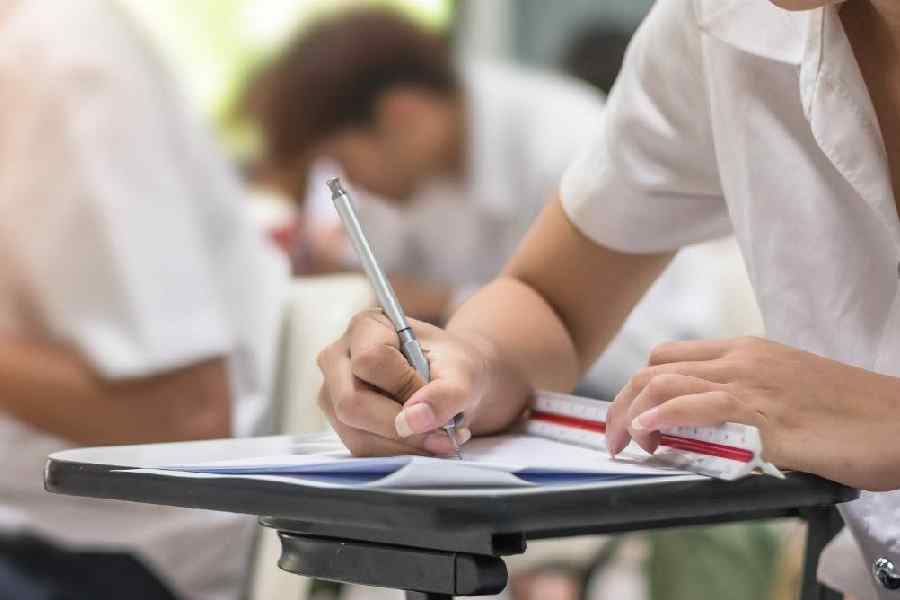The state education department will introduce round-the-year, non-academic assessment tests for students between Classes I and VIII in the state-run and state-aided educational institutions from 2025.
It will also introduce a holistic progress report for such students with information about their personality development.
The decision evoked a mixed response among teachers. Some questioned if there were enough teachers in schools and madrasas to tackle the extra workload. Others welcomed the decision, saying it would aid the overall development of students.
Banibrata Das, the district inspector of schools (secondary) of Malda, said that so far three summative exams in an academic year evaluated the academic progress of students from Class I to Class VIII.
“From the new academic year, along with the three summative exams, teachers will conduct formative tests every month to assess the interests, talents, weaknesses, behavioural patterns and health issues of students,” said Das.
Such monthly tests will be conducted in different ways, including verbal interactions, tasks and intra-class communications.
“If a student is found lacking in certain skills, remedial steps will be taken up in the fourth week of the month,” he added.
At the end of the academic year, the progress report of each student will have details of non-academic skills and interests along with marks in exams.
“The new format will help guardians get a clear idea about their children. It will help school authorities take initiatives for students in honing skills and improving areas of weakness,” said Das.
In Malda, the district education department is holding symposiums and workshops to apprise teachers about this new system from January 2025 — the start of the new academic session.
Das said they invited experts and teachers from the Gour Banga University to tell teachers how to conduct the new monthly assessments.
“The unique evaluation system will help in the personality development of students. Their hidden talents, behaviourial patterns and weaknesses will be detected and timely intervention will help them grow," said Biswajit Das, the registrar in additional charge of Gour Banga University.
An official of the education department said schools should assess students through summative and formative tests, but only do the former. "As a part of our policy to focus on formative assessments, we have asked schools to hold such assessments round the year," he said.
Chandan Maiti, general secretary of the Advanced Society for Headmasters and Headmistresses, said the state education department should not have been in a hurry.
“The state should have discussed with teachers' organisations before rolling out the system. Shortage of teachers is a big challenge for proper implementation of this system,” he said, adding that many schools lacked even a headmaster.
“Schools will also need extra funds for monthly tests. Last year, schools got only 50 per cent of the composite grant. This year, composite grants weren't released," Maiti added.
Subrata Guha, the West Bengal Trinamool Secondary Teachers' Association chief, lauded the move. “This assessment system will help create next-generation learners,” he said.











